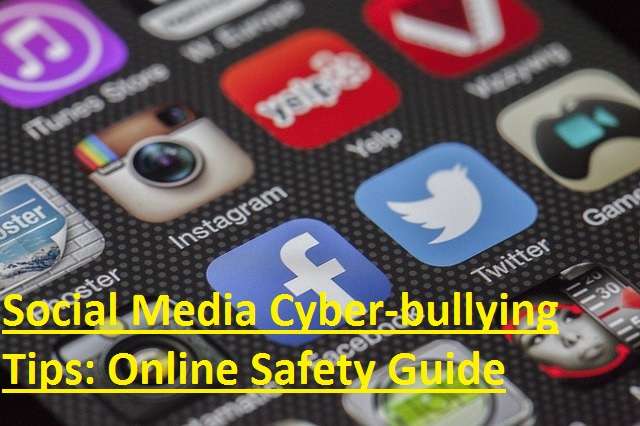Social Media Cyber-bullying: Online Safety and Security Tips for Children, Teens and Young Adults

Before technology, bullying typically occurred at school and in your local neighborhoods. However, today children, teens, and young adults have access to phones, computers, tablets, and other devices that connect them to the internet 24/7. This constant access to the internet has created a new realm for bullies known as cyber-bullying, causing victims to experience depression, anger, humiliation, and even suicidal thoughts.
Cyber-bullying occurs when someone or groups of individuals use online communication to harass, humiliate, and threaten someone else. Before handheld technology was widely available, bullies taunted their victims in person. The victims were usually smaller than their bullies in size and strength, but today, if an internet connection is available, cyber bullies target anyone regardless of their physical or mental attributes. Unlike a traditional bully, you may not even know their identity due to the anonymity of the internet. Unfortunately, cyber-bullies can target and torment others every hour of the day because the internet is an endless connection of technology.
General Security Tips
Privacy
No matter what social media platform you’re using, never post your address, school, phone number, or any other forms of identifying information. You don’t want strangers to be able to find out your location in real life. Also, keep the information of your friends safe as well.
Be careful what you post
Always be mindful of what you post. Posting something embarrassing about yourself may come back to haunt you later in life, like when you're trying to get into a college or interviewing for a job. It has become common practice for professional organizations to comb through the social media profiles of potential candidates to determine what type of person they are. Don’t give them a reason to judge and reject you. Remember this important tip – if you wouldn't want your mother to see it, don't post it. The moment you post an image or comment, that information can be copied and reposted thousands of times over, and you’ll lose the chance to delete that information forever.
Sending pictures
If someone wants you to take photos of yourself, think once again about if your mother would approve of those photos. If not, don’t send them. If a stranger contacts you online and attempts to make you send them photos, that should be an immediate red flag. Immediately cut ties with that person. If you are underage, tell an adult and report them to the proper authorities.
Public Places
If you’re using a public computer at a school or library, always remember to log out when you’re finished. If not, what’s to stop the next person who sits down at that computer from snooping through your profile?
Location Settings
Several social media platforms such as Facebook and Twitter allow you to post your physical location. This can be an exciting tool, especially if you’re on vacation with your family and you want to show off the places you visited that day. However, please be mindful that the possibility exists that complete strangers might see your post (a friend might share the post for example, or your profile might be set to public view) and subsequently discover where you’re staying. If the social media platform that you use has local services, find them and turn them off as a precaution.
Inappropriate Conduct
Cyber-bullying is synonymous with inappropriate conduct. If you’re a kid or teen and someone begins acting in a way that makes you feel uncomfortable, contact a teacher, a parent, and any other trustworthy adult. Know that if you’re being targeted, there’s a good chance the bully may be targeting other people as well. Reporting that person could potentially save someone else from being bullied. It’s vitally important that if anyone asks you to meet up in real life, you should refuse, especially if they suggest you do so in secret.
Beware of friend requests from strangers
It’s not uncommon for people to send random friend requests to complete strangers to bolster their friends list and appear more popular. There’s nothing wrong with meeting new people, but never forget that no matter how friendly a person may seem, they’re still a stranger. If they attempt to obtain your personal information like your phone number, address, school, or credit card information, that’s a red flag. You should alert your parents and they should contact the police if you are being stalked online and harassed for your personal information. Ensure that you don’t delete any of your correspondence with the stranger in question. The police may be able to use your messages to determine if that person is guilty of any illegal wrongdoing.



